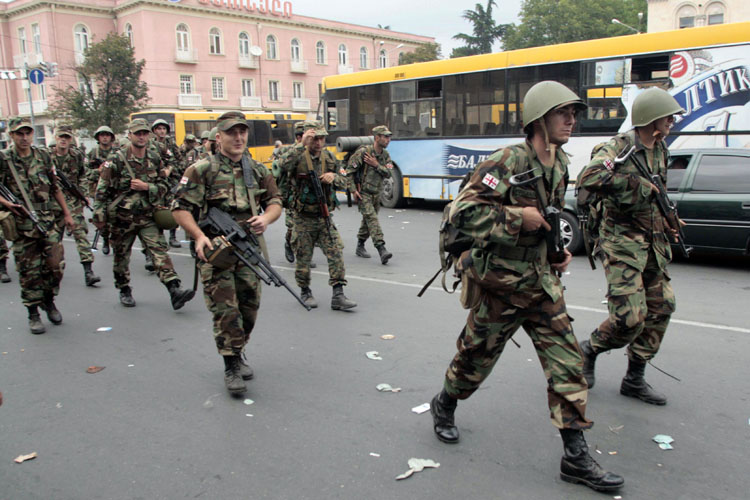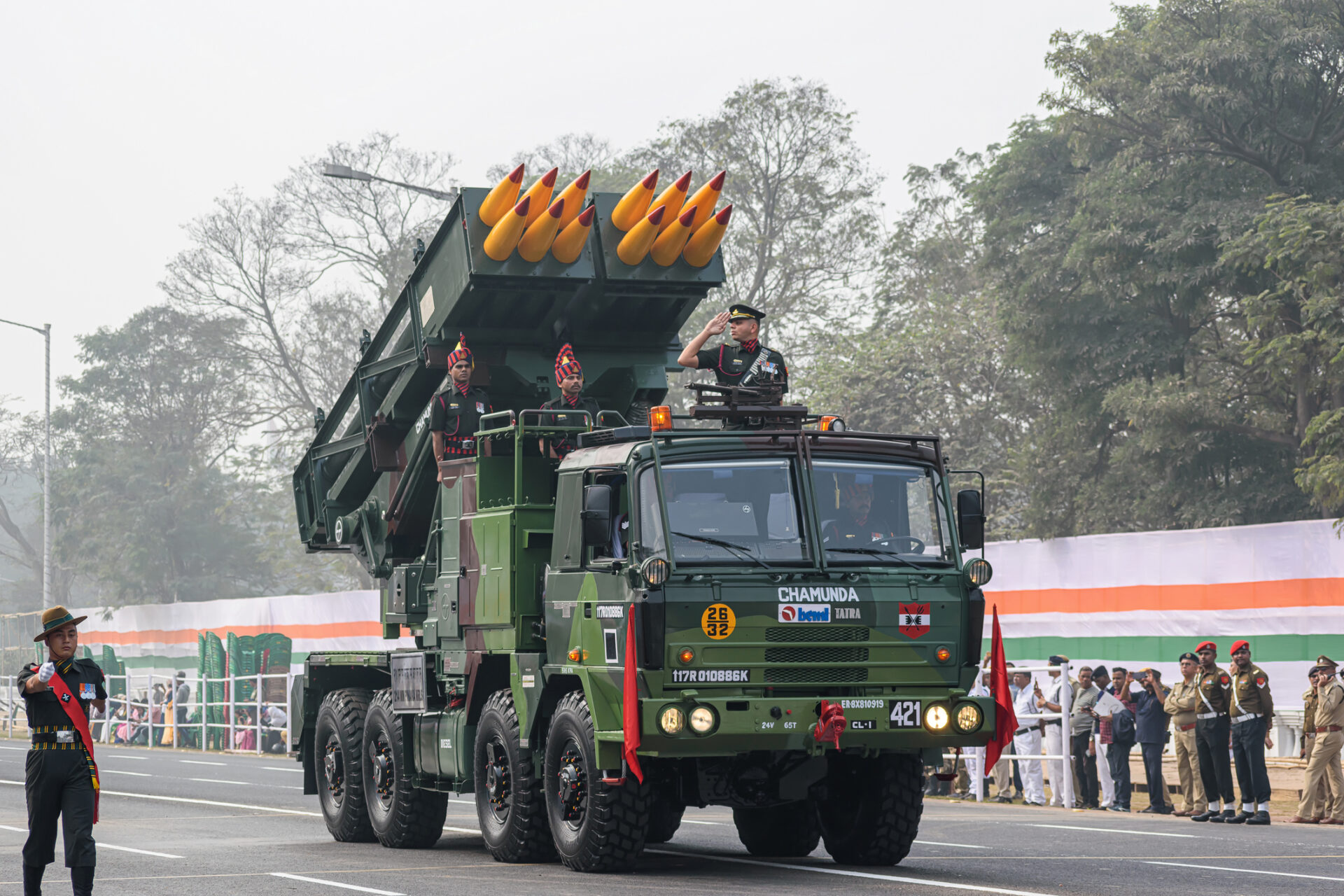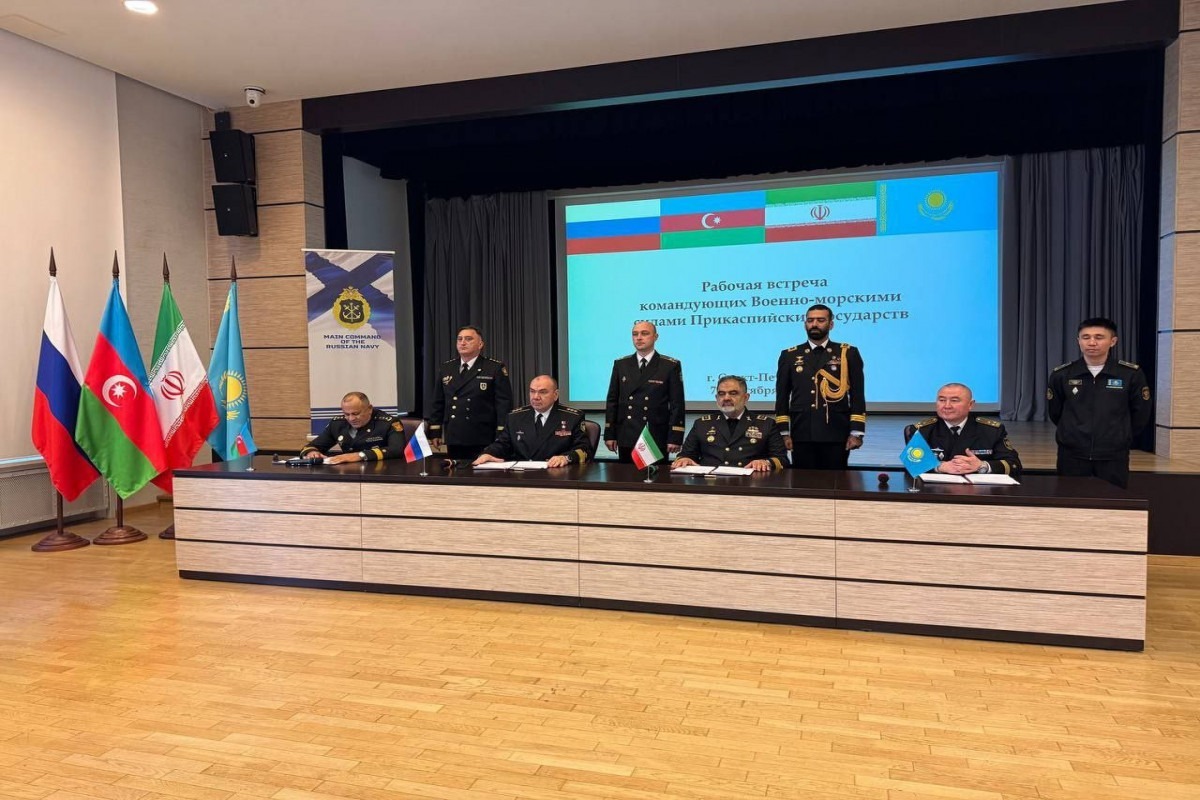
Georgia Moves to Adopt ‘Total Defense’ Posture
Georgia Moves to Adopt ‘Total Defense’ Posture
The Georgian Parliament endorsed in its first hearing the country’s new military reserve system, concluding a nearly year-long working process on its reform (Civil Georgia, January 30, 2017; see EDM, May 25, 2017). The respective amendments, drafted by the Ministry of Defense, will come into force on June 1, 2018 (Civil Georgia, February 8, 2018).
Irakli Aladashvili, the editor-in-chief of the military-analytical magazine Arsenali, along with other military experts and specialists, had been invited by the parliament to assist in drafting the bill. In an interview with this author, Aladashvili explained why the work on reforming Georgia’s reserve system lasted so long: “The country’s leadership and the Ministry of Defense were engaged in a dialogue with our partners in the West. Georgia seeks to get MAP [Membership Action Plan] and eventually join NATO [the North Atlantic Treaty Organization], which is why it is quite natural to use the best experience of the other countries, members of the Alliance, in the construction of [Georgia’s] reserve system” (Author’s interview, February 10).
He recalled the numerous visits of Defense Minister Levan Isoria to the Scandinavian states and Estonia. “These countries were at risk of aggression by a neighboring large state, so their reserve system, based on [the concept of] ‘total defense,’ is considered the most acceptable and relevant for Georgia,” Aladashvili said (Author’s interview, February 10).
During his visit to Estonia in 2017, Minister Izoria confirmed that Georgia is interested in the realization of a total defense concept. “We also intend to restore a conscription system and to establish mobilization and reserve systems [starting] next year. Nordic and Baltic countries have a very good experience in these areas, therefore we will continue a close cooperation with them,” he declared after meeting with his Estonian counterpart, Margus Tsahkna (Mod.gov.ge, January 27, 2017).
According to Aladashvili, the government of Georgia decided to change the existing reserve system after taking into account the results of the Five Day War of 2008. “Then, many of the shortcomings of the previous reserve system were manifested,” Arsenali’s editor-in-chief recalled (Author’s interview, February 10).
Georgia’s newly reformed reserve system, which Defense Minister Izoria explicitly identified as “total defense” (Mod.gov.ge, January 27, 2017), will have two components: the “active reserve” and the “mobilization component.” Furthermore, the active reserve will have three sub-components: a regular armed forces reserve, a territorial army reserve and specialized reserves (Civil Georgia, February 8, 2018).
Service in the active reserve will be voluntary, and reservists will sign contracts for a period of five years. The person enrolled in the active reserve will receive a monthly cash benefit—20 percent of the allowance of an officer or soldier-contractor, equal to him by rank.
The “armed forces” reserve personnel (mostly former service members and law enforcement officers) will be immediately called upon in the event of war, or for any other reason that could necessitate the use of the regular Armed Forces. The “territorial reserve” will provide additional support to the military, fulfilling the function of a “second echelon” in charge of locally defending Georgian territory. This contingent will be established under the National Guard and will support military forces in their respective locales. As for the “specialized reserve,” according to the new law, it will be made up of military personnel with special skills useful to the Armed Forces. This contingent will include, for example, specialists in computer programming and cyber security (Civil Georgia, February 8).
The second type of reserve force—the “mobilization reserve”—in contrast to the “active reserve,” will be mandatory for all adult citizens who have not reached retirement age. Every citizen of Georgia aged 18 to 65, will be obliged to serve in the “mobilization reserve” for 45 days a year, if drafted. In the event of a call-up, the reservist will keep his job and salary at his former workplace (Civil Georgia, February 8).
Georgia’s new reserve system fully complies with the Strategic Defense Review (SDR) document for 2017–2020 adopted by the defense ministry. At the same time, it reflects the country’s commitments to the North Atlantic Alliance to pursue deeper defense reforms and strengthen the “compatibility” of Georgian troops with NATO forces (Civil Georgia, April 25, 2017).
While reforming its reserve system, Georgia has simultaneously fully ended conscription to the regular military’s combat units: these units are already almost 100 percent staffed by contract soldiers (see EDM, April 29, 2016). Instead, draftees from the “mobilization reserve” perform some auxiliary functions for the regular Armed Forces that are not related to combat operations.
Irakli Sesiashvili, the chairman of the Georgian parliament’s Committee on Defense and Security, told this author that the ruling Georgian Dream party fully supports the national legislature’s initiative on the reform of the reserve system. He predicted that the law will be adopted in the second and third readings in the near future. “This reform will increase the defense capacity of Georgia and strengthen our cooperation with NATO member states,” the parliamentarian concluded (Author’s interview, February 10).
A member of parliament from the opposition party European Georgia, Sergo Ratiani, said that although the opposition is critical of some provisions of the government’s military reserve concept, in general pretty much all Georgian political factions are ready to support the new system (Author’s interview, February 10). Thus, military reform, including the reform of the reserve system, has become one of those rare issues on which a multi-party consensus actually exists in Georgia.


